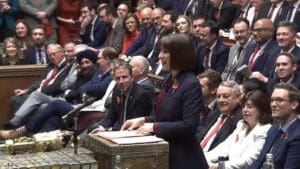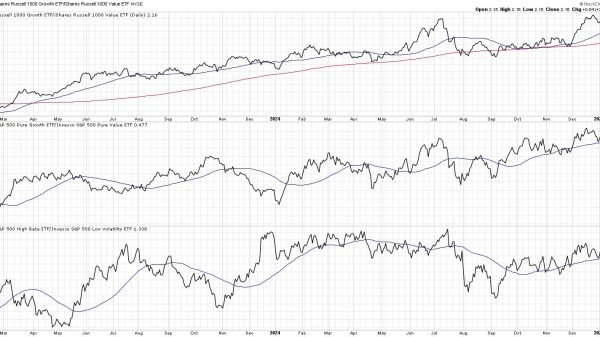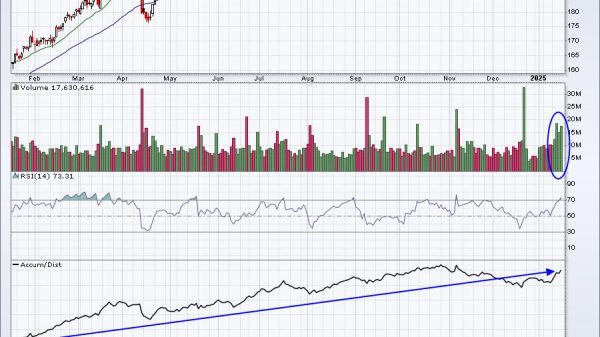
Traders are increasingly betting on a significant drop in the pound as concerns mount over the Chancellor Rachel Reeves’s ability to stick to her fiscal targets following a sharp rise in borrowing costs.
According to Bloomberg, many so-called options trades would profit if sterling plunged to $1.12, an 8 per cent fall that would mark a two-year low and surpass the volatility seen during the 2022 mini-Budget crisis.
Sterling lost 1.8 per cent last week, hitting $1.222, amid mounting worries about whether the Chancellor can meet her own debt and borrowing rules. The yield on long-term government bonds soared to its highest point since 1998, leaving the Treasury’s £10 billion fiscal headroom looking precariously thin. Investors fear Reeves may be forced to raise taxes or slash public spending to keep her commitments intact.
Meanwhile, the Bank of England is now widely expected to make only one interest rate cut this year, rather than two, due to persistent inflationary pressures. Jamie Niven, a fund manager at Candriam, said the outlook for sterling was bleak: “On one side, you have very limited pricing in of Bank of England cuts, while the fiscal concerns are also sterling negative.”
Last week, Deutsche Bank weighed in, encouraging investors to sell the pound. Economist Shreyas Gopal warned that “there’s further to go in the recent pound weakness,” echoing the sentiment that higher bond yields and looming fiscal pressures could exert downward pressure on the currency.
The market turmoil has fuelled calls for Rachel Reeves to step down. Stephen Perkins, Managing Director at Yellow Brick Mortgages, accused her of “steering the UK full speed into a dead end,” while Keith Budden, Managing Director at Ensurety, said that “she has generated zero confidence amongst the business community.” Both suggested a change in leadership may be the only way to restore stability and win back the trust of investors.
Kundan Bhaduri, a property developer at The Kushman Group, went further, labelling the current administration a “bumbling Labour circus” and describing Reeves’s economic policies as those “of a toddler with a chainsaw.” Meanwhile, David Belle, Founder and Trader at Fink Money, said her position had become “untenable” in light of “lies of not going through austerity,” inconsistencies in her CV, and a bond market desperate for pro-growth measures.
Gabriel McKeown, Head of Macroeconomics at Sad Rabbit Investments, suggested the government is essentially repeating mistakes made during the mini-Budget fiasco, warning that significant borrowing increases “without clear plans for fiscal sustainability” make the market’s reaction unsurprising. Riz Malik, Independent Financial Adviser at R3 Wealth, remarked that while a resignation would be best for the country, a suitable replacement for Reeves remains in doubt.
The frustration extends beyond the Treasury’s inner workings. Sam Kirk, Managing Director at J-Flex Rubber Products, questioned the Chancellor’s honesty, saying: “The only time ‘Rachel Reeves’ and ‘economical’ should be together is in the phrase ‘Rachel Reeves is economical with the truth.’” Kirk also lamented the broader political environment, suggesting that the available talent pool in the Cabinet and across political parties was worryingly shallow.
As the chorus of criticism grows, the coming weeks may prove pivotal in determining the economic direction and political stability of the UK. With bond yields near multi-decade highs, inflation lingering, and warnings of a looming slowdown, the Treasury must decide whether to overhaul its policies or risk further eroding the country’s credibility on the world stage. Whether such an overhaul includes a new Chancellor remains uncertain, but for now sterling appears caught in a deepening storm of fiscal doubts, market anxiety, and political strife.
Read more:
Sterling faces fresh sell-off as soaring borrowing costs could mean Reeves is on borrowed time























